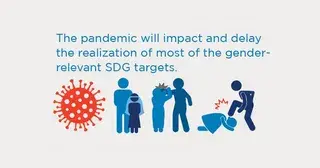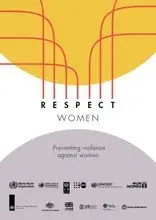If violence against women and girls is to end and Sustainable Development Goal (SDG) 5 on gender equality is to be achieved on the African continent by 2030, robust interventions, sustained investments and political commitment need to be in place and supported by diverse partners working togethers. This was the conclusion of more than 100 gender equality experts, policymakers, activists and researchers, who met to identify and propose concrete actions towards these goals.
The regional dialogue on eliminating gender-based violence (GBV) as a priority for the East and Southern Africa Region was organized by UNFPA, WHO, UNAIDS, UNICEF, UN Women and FEMNET, as part of the 2gether 4 SRHR Programme and contributing to the regional Generation Equality Journey.
Globally, one in three women experiences intimate partner violence or non-partner sexual violence during their lifetime (WHO, 2018). In East and Southern Africa (ESA), young women and girls are disproportionately affected by GBV, especially those with disabilities and living in humanitarian contexts. For example, in seven countries, around 20 per cent of young women aged 15 to 24 years reported experiencing sexual violence from an intimate partner.
Addressing barriers to ending GBV
During the advocacy dialogue, GBV experts from the ESA region proposed concrete actions to address the barriers that prevent member states in the region from achieving SDG 5, which will inform a regional sexual and reproductive health and rights (SRHR) advocacy strategy of the 2gether 4 SRHR programme.
Roughly half of all girls and women make decisions about their bodies without the fear of violence. This is not the case for the other half. It is not acceptable.
Jyoti Tewari, Regional Director OIC for UNFPA East and Southern Africa, said that “roughly half of all girls and women make decisions about their bodies without the fear of violence, according to new UNFPA data. This means that this is not the case for about half of all women and girls, whose decisions are governed by others. This is not acceptable.”
“This is a point in time where there is convergence of the urgency and the emergency we are facing if we do not make bold changes to uphold the fundamental rights of women and girls to live free from violence. Taking stock of the fast-approaching targets on GBV, we can see that our actions remain far behind our ambitions,” said Moez Doraid, Regional Director, a.i. for UN Women East and Southern Africa Regional Office.
“Generation Equality aims to transform this narrative. By mobilizing governments, women’s groups, feminist and youth-led organizations, international organizations, and the private sector as co-creators and co-collaborators, the Blueprints for Action over the next five years provide a focused roadmap for accelerating progress as part of this UN Decade of Action.”
Solutions identified
The participants identified solutions related to strengthening legislation, policies and data, ensuring bodily autonomy, preventing and addressing GBV in humanitarian settings, taking an intersectional approach to reaching groups most marginalized and strengthening integrated GBV services.
Taking stock of the fast-approaching targets on GBV, we can see that our actions remain far behind our ambitions.
Professor Rachel Jewkes, Executive Director of Research Strategy for the South African Medical Research Council, emphasized the importance of political commitment and resources: “We can prevent violence against women and girls. We need robustly designed and implemented interventions, resources and political commitment. This is foundational for everything that we need to achieve.”
The key actions identified during the dialogue will be published as a set of policy papers outlining the ways forward to ending GBV in the ESA region. These will propose recommendations for ending GBV and achieving SDG 5 by 2030, in support of the recently launched Generation Equality Blueprints for accelerating action on gender equality. The policy papers will further inform a regional strategy for achieving sexual and reproductive health and rights, and the work of the Regional SRHR Advocacy Platform to be established by the 2gether for SRHR Programme.
Women and girls need a seat at decision-making tables, but also need to be involved in co-creating the agenda.
Capturing the vision of the Generation Equality Forum to harness the power of intergenerational voices for achieving SDG 5, Mbali Donna Khumalo from FRIDA-The Young Feminist Fund called for radical, systematic change, more funding for feminist organizations, and supportive justice systems. “Women and girls need a seat at decision-making tables, but also need to be involved in co-creating the agenda.” Through the dialogue and in the lead up to the Generation Equality Forum in Paris and beyond, UNFPA, UN Women and FEMNET will continue this co-creation for gender transformation.





